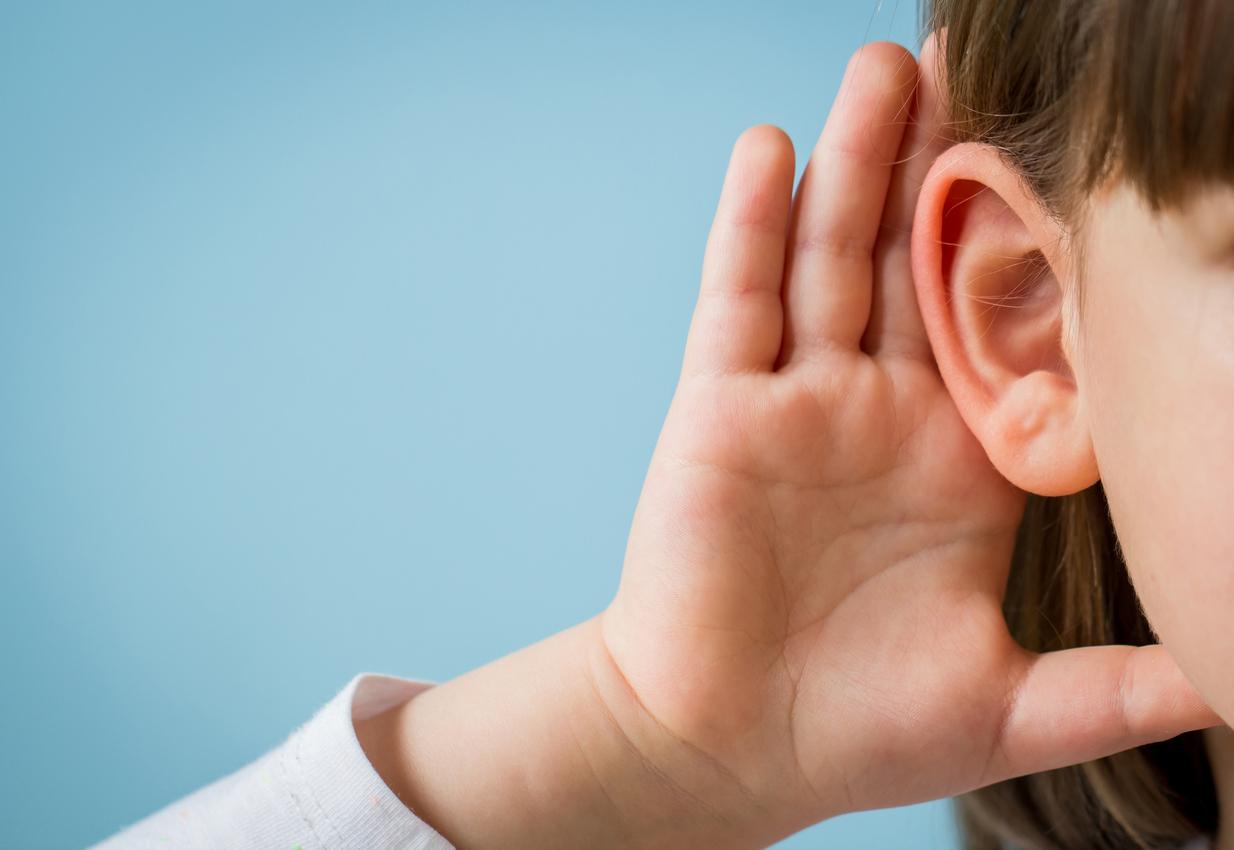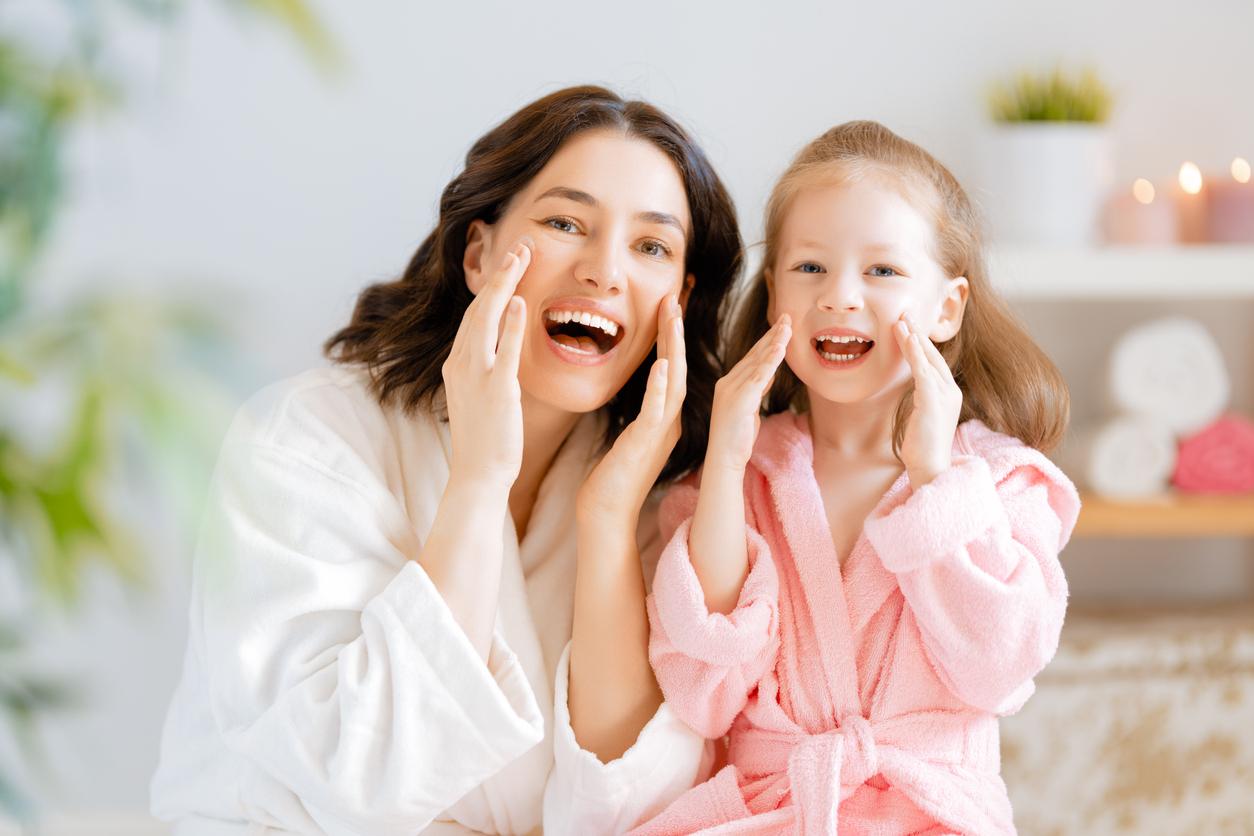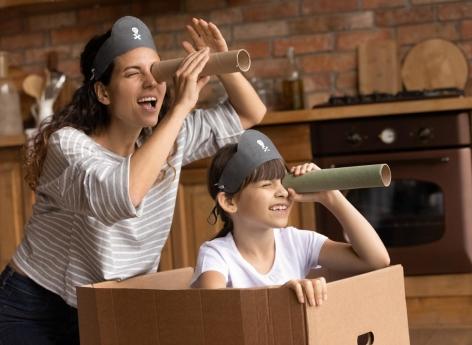On the occasion of National Hearing Day, this March 9, a new survey warns of the dangers of noise and sound pollution among toddlers.

- About 1.3 million children under 10 have already consulted an ENT doctor for tinnitus.
- For 56% of parents, hearing problems were alerted by their toddler.
- 40% of them declare that their child listens to music using earphones or headphones for 1 to 4 hours a day.
“Hearing is the foundation of language development, socialization and learning”, indicates Pr. Jean-Luc Puel, president of the JNA Association, in a press release. According to a survey carried out on the occasion of the 26th edition of National Hearing Day, the ears of children, which are much more fragile than those of adults, are in danger. More specifically, in children under 10 years of age, this organ of hearing would be “gravely threatened” early deafness.
Hearing loss diagnosed for 25% of children under 10
According to the survey, approximately 1.3 million children have already consulted an ENT doctor for ringing in the ears, or tinnitus. This disorder mainly concerns children over 5 years old (18%), those of workers (19%), residents of the Ile-de-France region (23%) and toddlers who use headphones or earphones daily (28%). Another alarming figure: nearly 660,000 children under the age of 10 who visited an ENT doctor were diagnosed with moderate to severe hearing loss.
Noise and noise pollution: 30% of parents say their child has already complained about it
The JNA Association reveals that hearing disorders justifying the consultation of an ENT are mainly raised by the close entourage or by a health professional. In detail, 41% of parents were alerted by a health professional, 23% by someone in their family or friends, 19% by their child’s teacher and 18% by a caregiver or by staff. from the nursery. According to the results, the child plays an important role in the detection of hearing problems, because the majority of parents (56%) were warned by it. “About a third of all parents say their child complains about noise and noise pollution, a figure that increases with the age of the child.”
The use of headphones or earphones, a factor aggravating the risk of hearing problems
Of the parents surveyed, 40% say their child listens to music using earphones or headphones for one to four hours a day. “Parents whose child is affected mention much more complaints of the child with regard to noise and noise pollution and the diagnosis of moderate to severe hearing loss”, can we read in the survey.
Another factor increasing the risk of hearing problems: growing up in a single-parent family. The survey indicates that parents raising their child in a single-parent household are much more likely to indicate that their child complains about noise and noise pollution. In addition, 57% report the use of headphones or earphones in their child, compared to 38% in households with two parents. Result : “parents in a single-parent household are over-represented to have consulted an ENT doctor for their child”.
Hearing of children: less than 1 in 2 parents feel well informed on the subject
According to the survey, a minority of parents, ie 49%, consider themselves to be well informed about the issues of deafness and tinnitus in their child and only 29% are aware of the measures put in place by the public authorities in this area. However, many parents recognize that noise and noise pollution have negative repercussions on different aspects of their offspring’s lives: their fatigue (for 55% of them), their sleep (47%), their nervousness and their aggressiveness. with others (44%), their level of stress (43%), their learning of lessons (44%) or their use of screens (42%).
According to the findings, 76% of parents believe that public authorities should make hearing a major national public health cause. They want to set up campaigns to encourage screening for hearing disorders. “We hope that the public authorities, and in particular the Minister of Health and Prevention, will become fully aware” of the importance of children’s hearing, concludes Prof. Jean-Luc Puel.


















